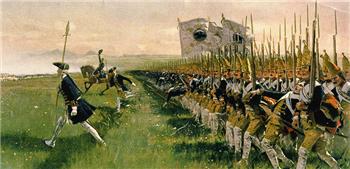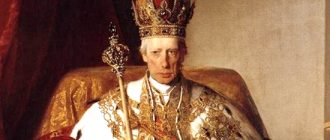Austria has survived as a subject of monarchial rule for a major part of its history. Find out about the origins and impact of the concept of absolutism in Austria.
The country of Austria has come a long way to establish itself as an independent republic and declaring its permanent neutrality. For much of its history Austria was a nation that existed under monarchial rule. The centuries of absolute monarchy came to an end after the World War 1.
Time and again enlightened political and social theories were developed that introduced revolutionary ideas for the governance of the country. This includes checks and balances along with social contract and individual liberty. The ironic thing was that most of them believed strongly in the monarchial system of government.
It was the seventeenth century when the so called intellectuals sought to justify absolute monarchy. This was the era during which the nature of monarchy was elaborately theorized. The idea that was popularized out of this theorization was that the monarch on top of the monarchy was the ultimate and sole ruler of the country. He would be accountable to no one but God.
The man behind the formulation and promotion of this theory was Bossuet. He had a belief that the monarch only ended up in that position due to the will of God. Although that is true, Bossuet meant that the monarch was honored and chosen by God to rule over the people. In this context he proclaimed that showing disobedience to the monarch is just as bad as being disobedient to God.
The fact that led him to believe this was his faith in the principle that the monarch was placed at the head of the state by God for a purpose. And since the monarch was God chosen he was not liable to answer to the people of the country in the different matters concerned with the governance of the state.
We may understand the impacts of this concept to mean that the power of the monarch as the head of the state was absolute. This is the very essence of the concept of absolutism. Bossuet went further deep in to the concept to practically fortify the concept by structuring a tightly knit centralized government for the monarch.
The workings of absolute monarchy
The king was to have his own agents. These agents would be used to keep a check on the local powers and nobility. They would make sure that the king is not being disobeyed and that the spirit of rebellion is killed at its first breath. Bossuet’s theory of absolutism had been applied in many countries over a period of time and was not just restricted to Austria.
Maria Theresa, Joseph II and King Louis are some of the prime examples of those rulers that accepted the theory in full and planned to practically execute it during their reigns. These were highly educated people who were at the same time extremely committed monarchs.
The adoption of such a theory worked in the best interests of the monarch. With the monarch not answerable to anyone but God the state of affairs of the nation and the standard of living of the people was greatly dependant on the character of the monarch.





